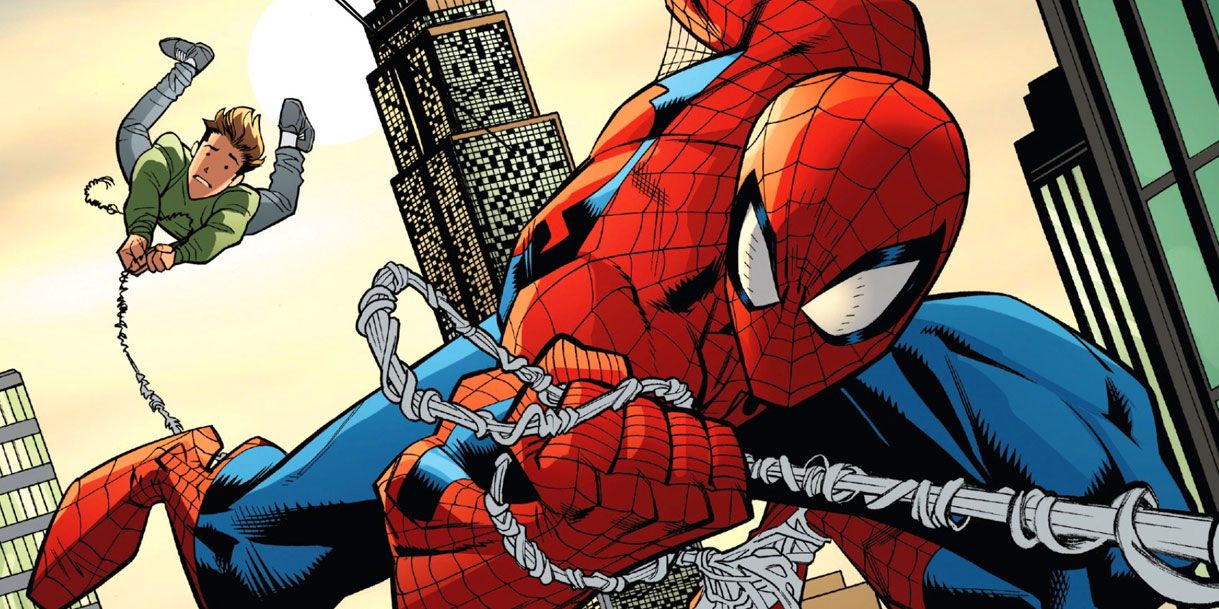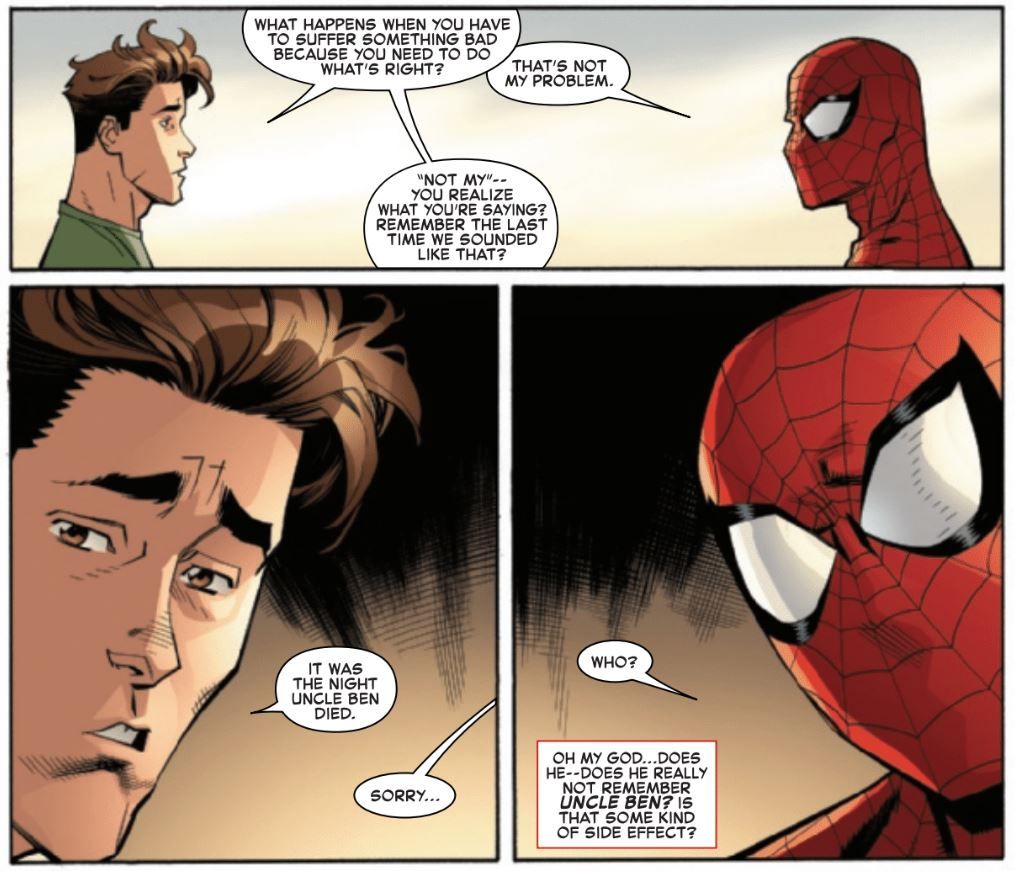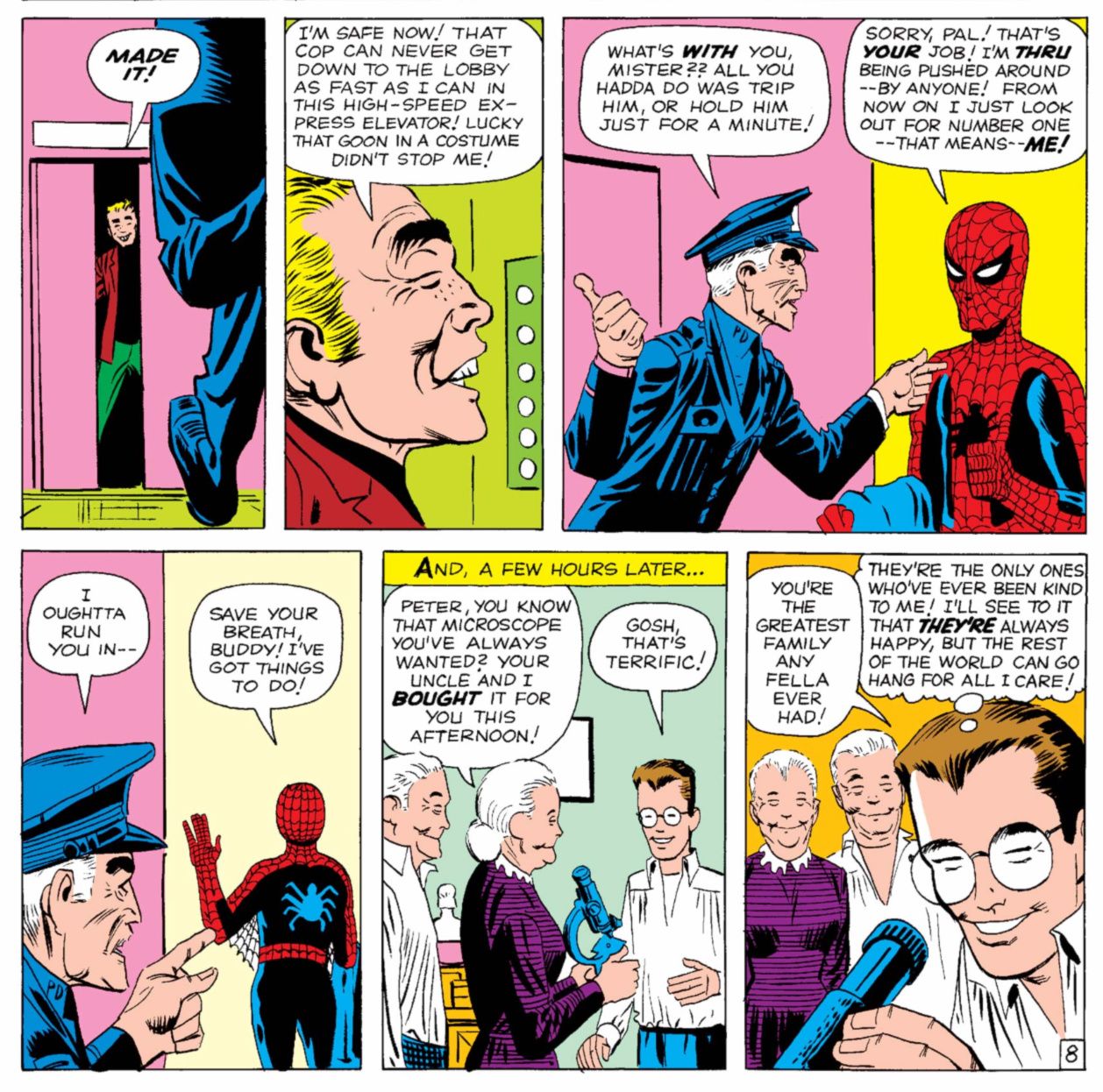SPOILER WARNING: The following contains major spoilers for Nick Spencer and Ryan Ottley's Amazing Spider-Man #4, on sale now.
Spider-Man has always adhered to a singular mantra, which is that with great power comes great responsibility. This mantra, gleaned through tragedy, has guided Peter Parker when the going gets tough, compelling him to stand up, take responsibility and try to make things right, even when the problem at hand doesn't affect him personally. The saying, repeated for years in the pages of Spider-Man comics and popularized in the mainstream by Sam Raimi's 2002 film Spider-Man, is attributed to Peter Parker's uncle, Ben Parker. To say that Uncle Ben had a profound effect on the life of Peter Parker would be a gross understatement. If anything, the paternal figure is directly responsible for the superhero Spider-Man. So, what happens when Spider-Man forgets him?
RELATED: Spider-Man and Mary Jane are Back Together, But They Probably Shouldn’t Be
Nick Spencer and Ryan Ottley's Amazing Spider-Man series is currently in the process of revisiting some familiar thematic territory in terms of the dueling personalities of Peter Parker and Spider-Man, though the course the creative team has plotted is refreshingly strange. The series sees Peter Parker split into two separate people when a science experiment is interrupted. From the ashes of the commotion, two people emerge: Peter Parker and Spider-Man.
Now, Spider-Man doubles are nothing new for longtime series readers. There are more clones and alternate-reality versions of Spider-Man out there than you can shake a stick at. But in separating the Wall-Crawler from the beleaguered scientist, Amazing Spider-Man has offered ample opportunity to examine the history of the character's warring personas.
RELATED: Batman #50 Overcomes Amazing Spider-Man #1 in July Sales
The best place to start is with what the split versions of Peter Parker and Spider-Man lack. Split Peter Parker, for example, has no super powers. He cannot simply don a pair of skintight underoos and leap into the fray again. If he tries to climb a wall like a spider, he falls. If he tries to dodge a blow using a Spider Sense, he likely takes a punch. If he tries to crush a pipe like it's paper, he gets a nasty cramp just like the rest of us.
On the other side of the equation, split Spider-Man is on 24/7. He's Spider-Man all the time, saving folks every hour of the day and free to start up his own version of Uber for superhero ridesharing. Where he's lacking, though, is in his morals. In his scuffle with the Tri-Sentinel, it was hinted that this Spider-Man doesn't have the same impeccable moral compass readers have come to expect from the hero. Amazing Spider-Man #4 confirms this, revealing that the split Spider-Man doesn't remember Uncle Ben and, therefore, doesn't have the "with great power comes great responsibility" mantra burned into his brain.
A story like this would often be relegated to an alternate-reality one-shot, but Amazing Spider-Man takes place on Earth-616, the prime Earth in Marvel Universe continuity. This makes the story decision all the more interesting because it means we can delve into Peter Parker's backstory from a canonical perspective rather than a purely theoretical one. This is great news for us, but terrible news for Peter Parker. That's because, canonically, prior to the death of Uncle Ben and the advent of the "great responsibility" mantra, Peter Parker was kind of a spoiler, conceited nerd-brat -- and that's who's running around under the Spider-Man mask right now.
Page 2: [valnet-url-page page=2 paginated=0 text='The Split Spider-Man Attitude Is A Direct Reference To Amazing Fantasy #15']
Peter Parker's now famous backstory was first laid out for Marvel Comics readers in 1962's Amazing Fantasy #15. The issue starts off by describing how frustratingly boring Peter Parker is, referring to him as a "professional wallflower." Luckily, Peter has his doting aunt and uncle to look after him -- Aunt May even cooks him up a fresh batch of "wheatcakes" for breakfast.
Social functions are where Peter ends up lacking, though. After being rebuffed by two women and called a "bookworm" by Flash Thompson, Peter grumbles, "Some day I'll show them! Some day they'll be sorry! Sorry that they laughed at me!" This is, in 2018, is what we now understand to be jilted supervillain-in-training quaverings. Not a great start for Peter Parker, and it gets even worse after he starts using his spider powers for personal gain.
RELATED: Peter Parker’s Split From Spider-Man Has Some… Unforeseen Consequences
Peter starts by taking a gig to stay in a ring with a wrestler for three whole minutes. Once the audiences gets a load of his spider powers, he immediately ascends to television stardom. At no point does he attempt to engage in any vigilante justice. That lesson comes when he ignores a robber exiting the television studio.
When a guard admonishes him, Peter tells the man that he is "through being pushed around" and that from now on he's only looking for "number one -- that means -- me!" Again, not a flattering image for Peter Parker, but it's a state of mind he'll pay for down the road when that same robber kills Uncle Ben. The great irony of the lesson, though, is that Uncle Ben doesn't even utter his now famous line in the issue. That nugget of wisdom is relegated to a narrative panel, but would later be retconned into an idiom frequently repeated by Ben.
These are all fairly common story points for anyone who is up on their Spider-Man lore, but they deserve repeating if only because they paint a picture of who split Spider-Man is. He's that guy who is out for himself (see: Spider-Man Uber). He's terrible at communication (see: Spider-Man frequently walking away from Peter Parker while he's trying to have a conversation with the split Wall-Crawler). He's impulsive (see: Tri-Sentinel rodeo hour). Split Spider-Man has been going through all the heroic motions, but he's not much of a hero under the mask.
Worst of all, he's terrible at listening to reason, which is going to be a huge impasse he and Peter Parker must soon navigate, as Amazing Spider-Man #4 also establishes that the clock is ticking for the split characters. Towards the end of the issue, Dr. Connors reveals that not all is well with the lab rats that have been similarly split. They're dying off, but before that they're forgetting more and more, loosing a little more of themselves as time goes on. Peter must convince Spider-Man that it's imperative they rejoin as quickly as possible, but how do you make a convincing argument when the person you must sway is literally the worst version of you?



